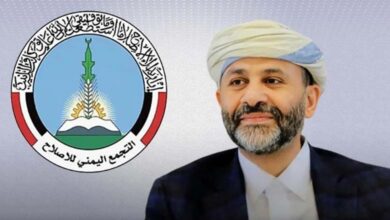The Assimilated Terrorism in the Brotherhood discourse… Exploiting religion to attain power

The Egyptian politician and leader of the “Al-Tajammu” party, Refaat El-Saeed, has issued numerous publications and studies that criticize the Muslim Brotherhood, as the late figure is considered one of the most prominent opponents of the Muslim Brotherhood and their goals of employing religion to seize power.
Among his works is the book “The Assimilated Terrorism: Why, When, and Where? The Muslim Brotherhood,” published by Dar Al-Amal for Publishing in 2004. The author argues that anyone who examines the history of the Muslim Brotherhood since its establishment at the beginning of the last century knows the extent of the clarity of assimilative thought in the Brotherhood’s discourse. Dr. Refaat El-Saeed warned against the ideology of the Muslim Brotherhood and its deviations from Islam.
The book states that the Muslim Brotherhood, in thought, practice, and history, is nothing more than the beginning of this ideology that has led us to where we are. A close examination of the circulated assimilative ideas and actions here or there, and perhaps in any corner of this world, reveals that they are merely an extension of the “Polemic” thought (meaning Sayyid Qutb’s thought). Just as the Brotherhood’s line extended in its straightness under the guidance of Sayyid Qutb to continue producing bitter fruits, the polemic line extended in its straightness – perhaps contrary to what its owner intended – to turn into what we suffered and continue to suffer from, with even more bitterness.
-
The Muslim Brotherhood attempts to harm the Egyptian state through incitement against the government
Refaat El-Saeed, an Egyptian leftist politician who chaired the Al-Tajammu party after Khaled Mohieddin, earned a Ph.D. in the history of the communist movement from Germany. He was a former deputy in the Egyptian Shura Council and is considered one of the prominent figures in the Egyptian communist movement from the 1940s to the end of the 1970s.












